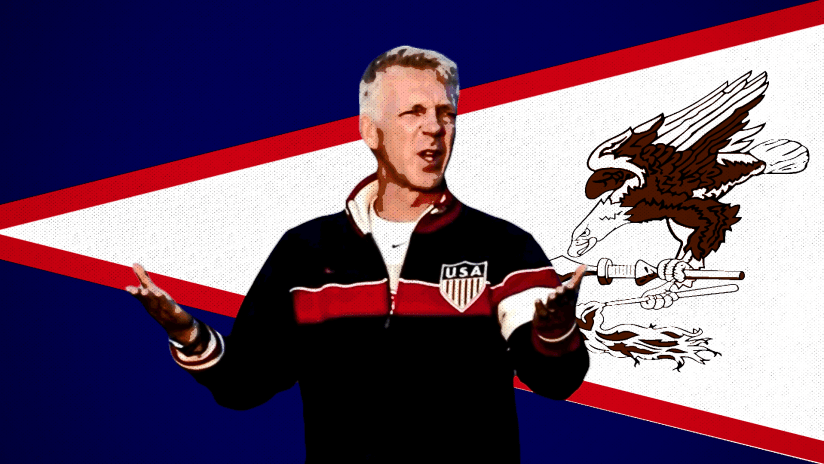With the Nov. 17 release of Taika Waititi’s major motion picture “Next Goal Wins,” two Thomas Rongens now exist in the world.
One was born in Amsterdam, moved to the US in his early 20s for a $1,000-a-month contract in the North American Soccer League (then America’s top-tier league), and partied with Mary Tyler Moore, Prince and Jack Nicholson. He went on to coach high school soccer, then college, then MLS and US youth national teams. He suffered great personal loss, found new inspiration coaching the American Samoa national team, and now covers Lionel Messi as a color commentator for Inter Miami CF.
The other is played by Michael Fassbender in Waititi’s latest film.
Both are larger than life.
“I started with Pelé [playing in NASL], and I'm finishing now with calling all the Inter Miami games with the first active Ballon d'Or winner in Major League Soccer [Messi], which is incredible,” Rongen told MLSsoccer.com, reflecting on a journey that’s wound through every level of US soccer and most corners of the globe.
The will to win
Rongen isn’t the only character portrayed in “Next Goal Wins” whose life before and after the events of the movie could warrant numerous spinoffs and sequels. Jaiyah Saelua, the first trans woman to compete in a FIFA World Cup Qualifier, also comes to mind.
But more than the pair’s unique traits or accomplishments, Waititi maintains it’s the broader themes from their shared time with the American Samoa national team – Rongen as coach, Saelua as player – that inspired his fictionalized adaptation of a 2014 documentary by the same name.
“I feel like any character can be in a Taika Waititi film, I can just change them,” the director told MLSsoccer.com. “For me… there was something amazing about just the [team’s] refusal to give up and then go and ask to get a different coach and just to keep trying.”
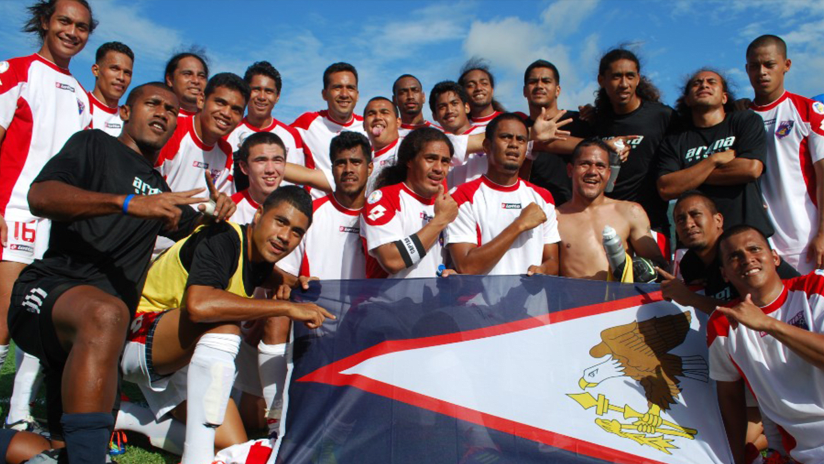
That “refusal to give up” refers to American Samoa’s perseverance in the face of a nearly 30-year losing streak (and four-year goalless drought) that preceded Rongen’s 2011 arrival. In the middle of that harrowing stretch, the team hit its deepest low with a 31-0 loss to Australia, the specter of which haunts players and federation members throughout Waititi’s movie.
In the film, American Samoa strive for a win to erase the pain of that defeat – and many others – while Rongen’s character seeks one to fill a more personal void.
“Everyone wants to win when they're playing a sport. It's undeniable because it makes you feel good,” said Waititi. “Otherwise what's the point in playing? The whole point is to score goals. You have to want to win to be able to do that.
“It's more that what Thomas is trying to do is like, he thinks that this idea of winning will make him a winner and will get rid of the sense of loss that he's had in his life. He equates winning matches or being successful on the scoreboard as somehow meaning he's dealt with his s--t. To deal with your s--t, you’ve actually got to talk about your s--t and you’ve got to address it and you’ve got to face it."
Rongen’s Total Football
The “s--t” in question, which gets revealed in the movie’s final act, is a tragedy that befell the real-life Rongen before taking the American Samoa job. But while the coach credits his time in American Samoa for helping him at least partially process that trauma, he argues that any truth to the intensity of his fictionalized character’s drive to win stems more from the exacting soccer tutelage he received under legendary Dutch soccer manager Rinus Michels.
“My foundation is Rinus Michels, Johann Cruyff, Wim Jansen,” said Rongen. “In terms of my philosophy, how the game needs to be played, I'm steeped in Clockwork Orange Total Football, obviously. And if you look at my teams, we’re probably always in the top three for most goals scored.”
In the system Rongen learned as a youth player with Ajax and then a defensive midfielder under Michels with the NASL’s LA Aztecs, style of play was everything, and understanding the tactics far exceeded personal bonding on the priorities list.
He carried that tradition on as a coach in MLS and with US youth national teams: “Some players would say of me, ‘He's a dictator.’ You know, I'm Dutch. I'm direct. I'm in your face.”
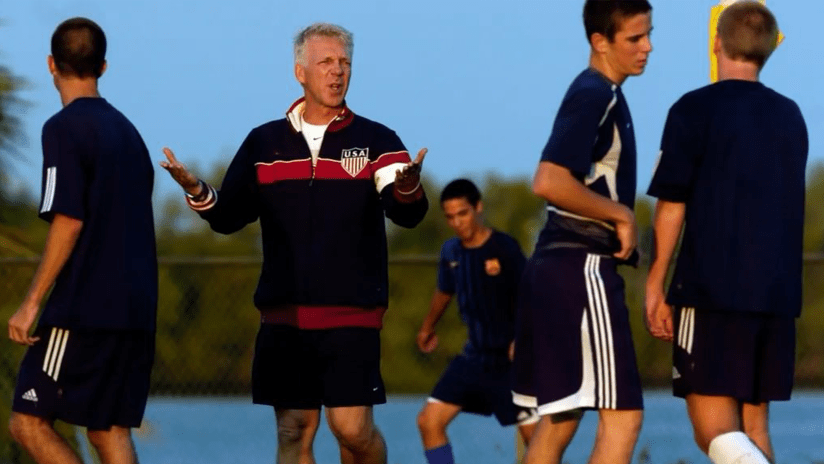
But if Rongen followed in the sometimes harsh stylistic footsteps of his Dutch coaching predecessors, it was for good reason.
Michels is credited with igniting the Total Football revolution when he coached the legendary 1974 Netherlands national team to a World Cup final. The star player of that team, Cruyff, carried on the torch as a coach at Barcelona, where he notably influenced the techniques taught at their famed residential youth academy, La Masia. There, many of the best players in the world went on to hone their craft, including Miami’s Messi and Sergio Busquets.
To boot, without Michels, there would likely be no “Next Goal Wins” because Rongen may have never come to live in the US and met figures like former soccer federation president Sunil Gulati, who connected him to the American Samoa job. It all dates back to when he played for the Dutch amateur national team that toured the United States in the late '70s, scrimmaging the US Olympic team in various cities across the country. Michels wasn’t the head coach of that team, but he accompanied them anyway.
“We're flying over the Rocky Mountains, and I'm sitting in the window, actually, in a two-seater, next to Rinus Michels, and I'm shaking," Rongen said. "This is the man. And I'm not a conversationalist, but at one point he goes, ‘Thomas!’ I go, ‘Yes, coach?’ He goes ‘What do you think?’ I go, ‘Wow, it's a beautiful country.’
“... Fast forward to January of 1979, and he calls. ‘Thomas, this is Coach Rinus Michels. You remember our conversation on the plane?’"
Michels had a job offer for Rongen – one that was good enough to put the young Dutch graduate student's plans for getting a master's in physical education on pause: Pro soccer player for the LA Aztecs.
“If he doesn't sit next to me in the plane and happens to then go coach LA, Thomas Rongen would be somewhere in the Netherlands doing something. Probably coaching,” Rongen reflects.
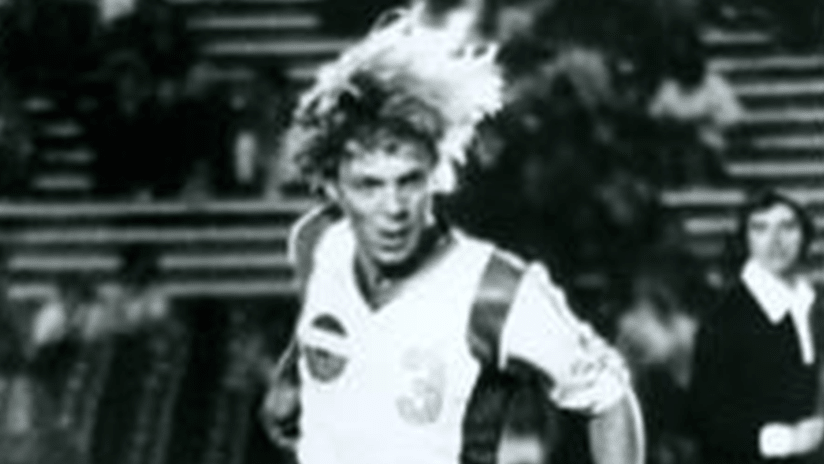
A new way to coach
Despite all Rongen learned about soccer from his mentors – and all the trophies he won as a coach (including 1999’s MLS Cup) that prove his expertise – he’s the first to admit coaching American Samoa in 2011 made him a better teacher of the game.
“I still could have gotten more out of individuals,” the coach said of his time in MLS. “You get more out of individuals by having greater personal relationships, tapping into their positives, negatives, how they work. So if I can push the little button and they respond, I probably would have been more successful.
“And I learned that on that island – to actually expose at times your weaknesses and show vulnerability, show that you're human.”
There may lie the most important lesson shared by both the real and fictional Thomas Rongens – an increased appreciation for the way personal bonds influence success on the pitch. It’s a point Waititi drives home in his movie by heightening the highs, and especially the lows, of his coach-player relationship with Saelua.
In Act 1, the fictional Rongen has trouble accepting Saelua’s Fa’afafine (Samoan term loosely equating to non-binary or third gender) identity. But the real Rongen takes pride in having embraced the defender from the start – even if other parts of American Samoan culture, like mandatory afternoon reflection, took more time.
“I knew that Jaiyah was shunned by formerly palagi [white] coaches and that they called her Johnny based on a passport, and I called her Jaiyah from day one,” said Rongen. “I knew former coaches did not go to church with them. In the documentary, you see me from day one go to church. I initially fought the four o'clock gongs where you have to reflect, but when they explained it to me, I did it with them every day.”
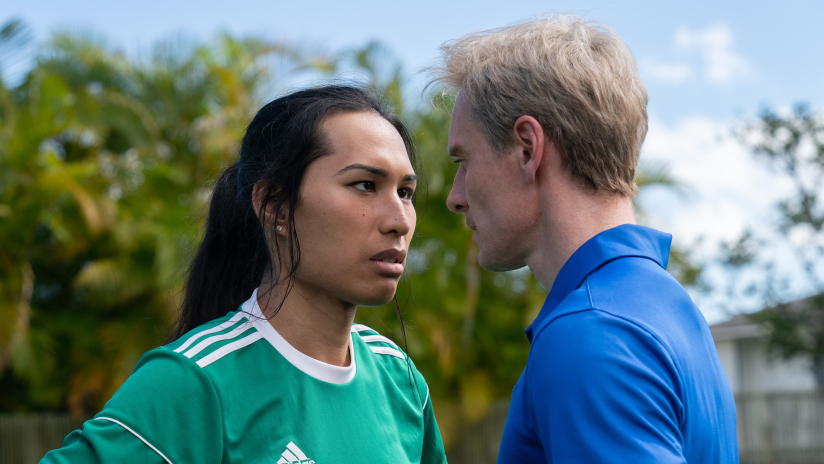
Common ground
If Waititi made major alterations to Rongen’s character, or others, in the film, it wasn’t out of disrespect; it was to satisfy the age-old demand for all filmmakers who fictionalize real events for the silver screen: serving the story.
“I said to Thomas very early on, you know, the very few times that we spoke, that I was going to change his character and change events and just take liberties and just make my own story, because that's what I do,” said Waititi.
“... It was just we had to have him go through moments of ignorance or be lost at the beginning of the film in order for him to find someone.”
And if anyone understands the importance of not doing it all alone, it’s Waititi himself, who sees parallels between Rongen’s journey to embrace vulnerability and teamwork and his own path of learning how to lean more on collaborators – at least sometimes – in his career as an auteur filmmaker.
“I think I've just relaxed a little bit more and being able to trust other people and put responsibility in the hands of other people and kind of give myself a break,” said Waititi. “I think I sort of beat myself up a lot over the last 20 years trying to do everything myself.”
“It's like, look, sometimes you need to be able to do something. Or to use another analogy, like Beckham in that doc had to take it upon himself to motivate everyone, and dude is like s--t, if you want something done, you're maybe gonna have do it yourself, which also applies in a lot of ways in life and career. But then also realizing you're just one person and sometimes if you rely on everyone as a team, then you a share the pressure, you share the wins, you share the losses.”
In that same spirit of collective growth, Rongen sees the next evolution of American soccer taking place not in the country’s biggest stadiums, but in its neighborhood fields and blacktops, where kids can learn to love the game for the sheer creativity, freedom and joy of it.
“We need to find ways to do it better at the grassroots level, where between six and 12, that's where the Messis, by the way, hone their skills,” said Rongen. “It could be via a great coach who understands what they're teaching, or as I say, again, some trial and error like Messi did in Argentina. ... Can we do a more wholesome environment that’s not stressing like nuts for nine-year-olds? You're not coaching Barcelona, dude.
"It's not about winning, it's about creating better environments.”


